Andy Barter
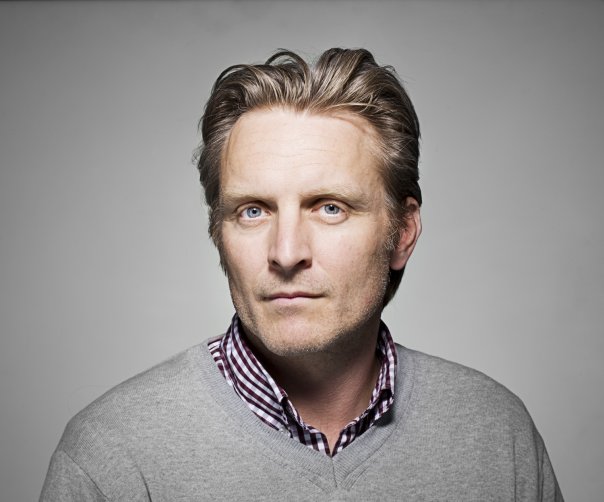
A master who brings all these magnificent fashion items and accessories to life. All the Vogue lovers constantly see the most gorgeous trendy pieces on his images on the pages of the magazine. Photographer Andy Barter, who lives and works in London, has accomplished a lot: his work has been featured in Cannes Lions International Advertising Festival, Paris Art Directors Club, D&AD, Campaign Press, Communication Arts (magazine), Benson & Hedges Photographic Awards, etc. In the exclusive interview to ‘The Fashiongton Post’, Andy tells about his MIXED project, shares his priorities in life and work in particular.

The Fashiongton Post: What was your inspiration that made you try yourself as a photographer and when exactly did it happen?
Andy Barter: I took an image when I was 14 of my sister Madeline when she was around 3 years old she was sitting in flowerbed full of tulips. My mother loved it so much she had a large print made and sent it to my grandmother; it was so well received by her and other family members that I felt inspired to continue with image making.
F.P.: Have you ever attended any professional courses, master classes or was it completely your own inner intuition and creativity that gave you an idea concerning the way you are supposed to shoot?
A.B.: I studied photography when I was 17 at Plymouth College of art but I wasn’t an ideal student and found the experience quite restrictive, they didn’t invite me back for the advanced course and after working for a year in a hired studio I met London advertising photographer Simon Summerville, I worked for him for 4 years.
F.P.: Which camera of all that you ever had you consider as your favorite one?
A.B.: My 5×4 Deardorff.
F.P.: You are the master of different types of photo. Which one is more exciting for you?
A.B.: The most exciting is when you are able to work to a free brief, or even better, your own brief. It is always more satisfying to shoot for your own personal projects. And so I try to keep this going alongside my commercial work. It can sometimes be hard to balance this but I believe it’s the most important part of being a photographer to maintain your own projects.
F.P.: Tell us about your personal project called “Mixed”. What is its main idea and purpose?
A.B.: Mixed is a project that looks at people of ‘mixed heritage’ and their families. ‘Mixed’ is the fastest growing ethnic group in the UK and it’s diversity has made it difficult to pin point meaning a whole group of people have been somewhat ignored by society in the media, politics etc. But in 2001 it became a specified ethnic group. It is a subject close to my heart as I have 3 mixed children and I am in an ‘ interracial’ relationship. I wanted to do this project in a way to celebrate diversity and to recognize the lives and stories of this group of people, hopefully breaking some stereotypes along the way!
F.P.: What was the most exciting cooperation experience you ever had during your career? Whose best shots were you an author of?
A.B.: I like to work with different people and I have been lucky enough to collaborate with a lot of great art directors and stylists. I can’t say there has been a most exciting or best but I do like to collaborate and generally enjoy working with other talented people. I really enjoy working with Rhoda Dakar on the mixed project, but that is less photographic and more about a collection life stories…
F.P.: Can you tell us what kind of camera do you use nowadays?
A.B.: It depends on what I’m shooting and for whom I’m shooting…I use Canon digital SLR system which consists of a couple of bodies and a small variety of lenses. I also use medium format digital such as Hasselblad and Phase One. Before the digital takeover however I used to shoot all my work using Deardorff 10×8 and 5×4 plate cameras, which I still have now. They are really beautifully crafted cameras.
F.P.: Would you share some of your tips with the young photographers? We believe that the most of beginners in this field would want to know what it takes to become a perfect photographer! Are there any really important things they should learn?
A.B.: It depends on what you want from it! It’s a hard life in many ways. Very few can relax and rest on their laurels. Your career can feel like it’s out of your hands and jobs come and go on the whim of somebody else, so you need thick skin and plenty of belief. I don’t really want to join the growing army of advisors (most have never made an image in their life) but keeping a passion and a belief in what you are trying to achieve is very important to me. Try to filter your information in as it can be overwhelming. Instead, focus on what took you to photography in the first place. It just might take you somewhere more interesting…
F.P.: What are your major principles in life and work?
A.B.: Work hard! And gritty determination! There are so many really good photographers out there; you need to go the extra mile to make sure your own work is of the highest quality. I want to keep learning it what keeps me focused.
F.P.: What would you like to accomplish in the future? Have you got any huge plans?
A.B.: Yes, but I will keep them to myself for the time being… I’m always thinking about ideas and projects and filtering my own ideas… my goal is always to be better and to think differently.
F.P.: Is there any other passion in your life? Tell us about your interests and things you like to do besides work?
A.B.: My family, I have a partner and three children. I also try to get out of London into the country side as much as I can, I’m petrified that I’m so focused on my photography that my personal life will pass me by…. So I try not to spend too much time sleeping or lying around in bed and do my best get out as much as possible and enjoy life outside the studio.
F.P.: Among all of the famous photographers, who do you think made the greatest contribution in this field? Is there someone you might be probably considering as the great example for you?
A.B.: Photography is a subjective medium, and seems to be getting evermore so. Personally I have long been inspired by Irving Penn’s work. His work seems to effortlessly glide from fashion to portraiture to still life, and his work has a classic simplicity that I really admire.
F.P.: Please, describe your personality. What kind of person are you?
A.B.: Bloody minded…
F.P.: What is the first and the most important thing that you’ve learned in your profession?
A.B.: Work hard and have the highest standards you can…and never give up on yourself and try not to be too harsh on yourself when you fall short of your expectations.
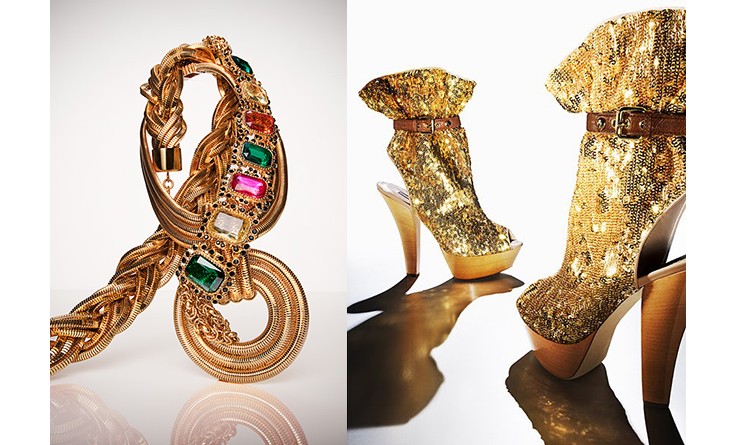
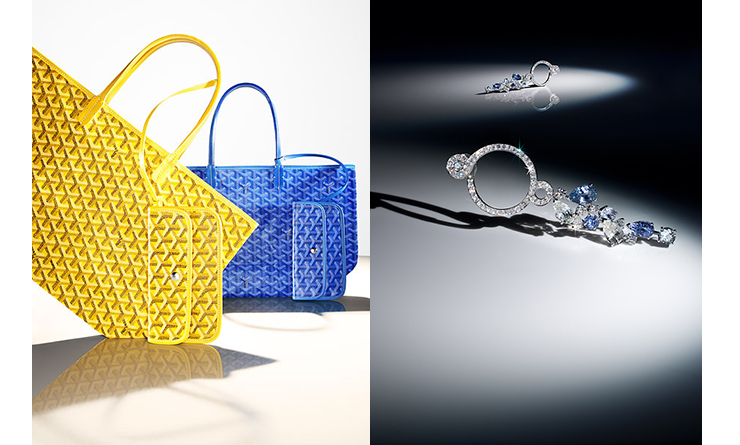
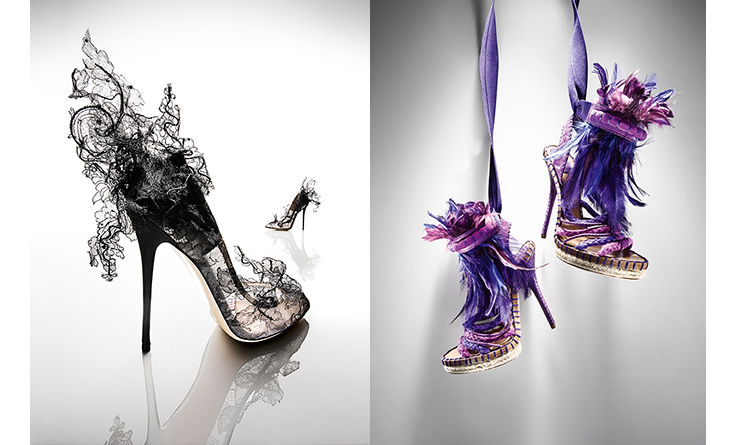
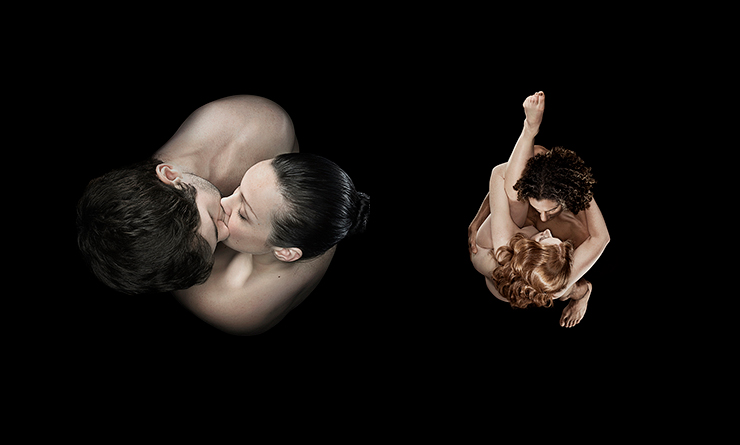
- Official site of Andy Barter: www.andybarter.com

